Strategizing from 7 cities across the globe
Helping Others: An Initiative Born Out of the Rubble
Rana C. El Masry, a 20-year-old Political Science student at the American University of Beirut, explains why she established this organization with her peers. Her story, while heartbreaking, also shows the resilience Lebanese youth possess.
Unfortunately, the war between Israeli forces and Hezbollah erupted into full-scale violence. On the 17th of September, the situation escalated with a terrorist attack—an event that marked the start of unimaginable terror. I vividly recall running from class to donate blood for those affected by the bombings. This was not just a conflict involving Hezbollah; it devastated every Lebanese individual, from civilians in the area to those in American territories.
Later that day, I found myself trying to return to class, yearning for a moment of normalcy, but it was impossible. The sounds of explosions shattered any illusion of safety. The walls around us quivered violently, and the windows seemed ready to burst from the force of nearby blasts. I could not feel my knees; they were trembling uncontrollably. Fear consumed me as the situation escalated at a terrifying pace.
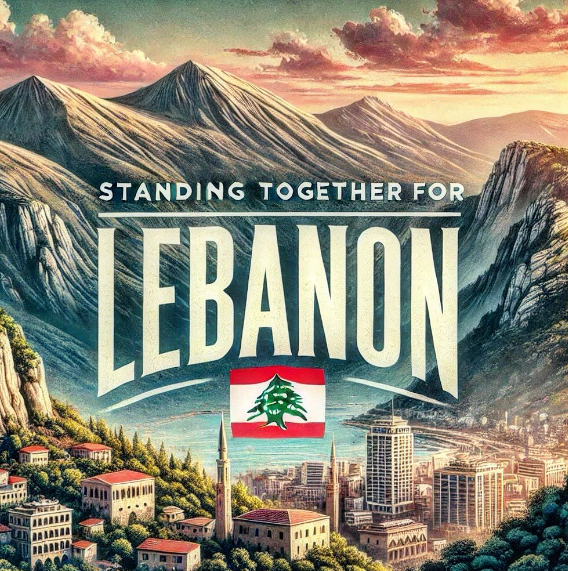

I was with my friends, exhausted after spending the entire day working to provide aid and help those in need. We had just sat down to eat when I was shaken by the news—20 bombs had dropped in the area, destroying at least 10 buildings and killing innocent civilians.
At 4 AM, we received maps showing the locations that were about to be bombed, all allegedly due to the presence of individuals linked to Hezbollah. In their view, this gave them the right to attack. Tragically, my house was one of the targeted locations. I woke up terrified, receiving a call from my best friend yelling, "Rana, move! Run away! Our home is targeted!" In the middle of the night, we fled, bombs exploding around us, the air dense with fear. Despite everything, I had to stay composed, drive, and get us to safety, not even knowing where to go.
While driving, I saw people on the streets in a similar state of panic, no cell signal to call for help, desperately trying to find my father. If it weren’t for my friends who helped me find a safe place to stay, I don’t know what I would have done
For the next three days, I was devastated—crying non-stop over the loss of my cousin, the destruction of the house my parents had spent 30 years building, and the terrifying thought of losing the country I love so dearly. The pain was overwhelming, but I knew I had to keep going—for my people, my family, and the country that I cherish.
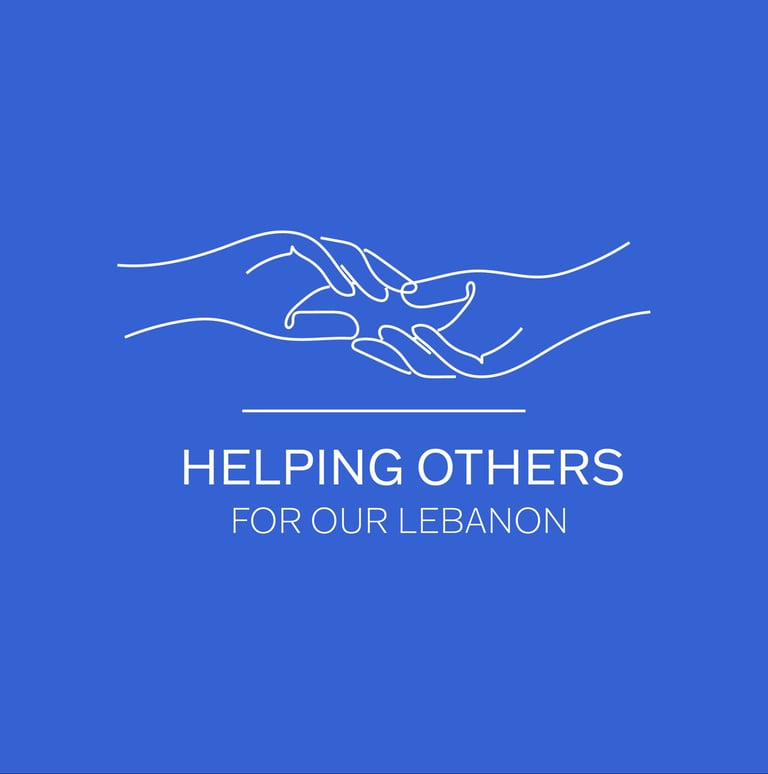

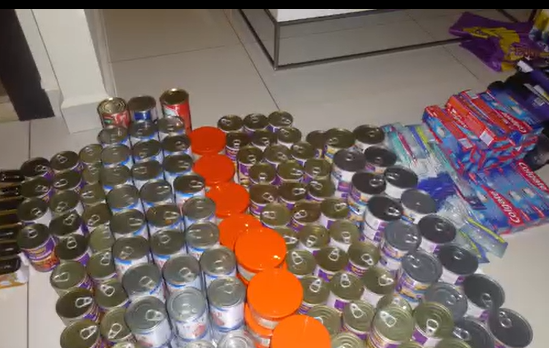

Out of this tragedy, Helping Others.lb was born—a response to the unimaginable suffering of displaced individuals from Southern Lebanon and Dahye, Beirut. My group of friends, including Mohamad Yassine, Mohamad Baghdadi, Dany Kanaan, Aya Beydoun, Kassem Yassine, Ahmad al Akhrass, Mohamad Nassreldine, Ghina Hammoud, Yasmine Al Tinawi, Samara Hojeij ,and more individuals joined me in this effort. Together, we sought to support our community and provide whatever relief we could in the face of such brutality.
Well, how do we function?
Our initiative operates through a division of tasks, ensuring that all areas are covered efficiently:
Donations Team: Responsible for collecting monetary donations and supplies.
Runners Team: Handles errands, delivering supplies, and transporting goods.
Providers Team: Identifies and works with specific suppliers for necessary items.
Marketing Team: Promotes the initiative and raises awareness through various channels.
Social Media Team: Manages the initiative’s social media presence and outreach.
Medication Team: Focuses on sourcing and distributing essential medications.
Area-Based Teams: We divided the regions into smaller areas, each with a designated team leader responsible for handling the needs specific to that location. This structure allowed us to streamline aid distribution and offer targeted assistance based on immediate needs.
Growth and Collaboration
After establishing the initiative and working tirelessly for the first two weeks, we began to expand our exposure. Using platforms like Instagram and WhatsApp, we collaborated with student societies and medical funds, such as "Medical Humans Fund," to extend our reach and attract more donations. These partnerships helped us address more affected areas and cater to a growing number of individuals in need.
Donations Over Time
Before 27th September: Our average daily donations amounted to $3,000, allowing us to meet many of the immediate needs of displaced individuals.
After 27th September: Unfortunately, as many of our team members were forced to separate—some emigrated to the mountains, while others had to leave their homes due to unbearable noise—the average daily donations decreased to $1,000.
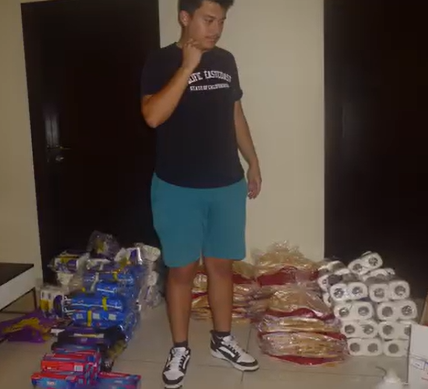

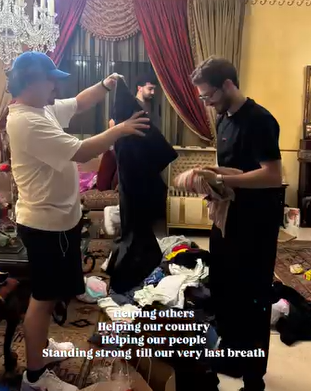

Future Global Strategies
Collaboration with Student Societies
After two weeks of non-stop work, we have begun partnering with student societies at the American University of Beirut. This collaboration will help expand our reach and provide more structured support to those in need. By leveraging the university's networks, we can gather more resources, increase donations, and coordinate targeted assistance more effectively.
Partnership with Medical Students
We are also working closely with second-year medical students to identify families in urgent need of help. This partnership not only assists in locating those affected but also helps in collecting and distributing medical supplies across Beirut. The medical students’ expertise is invaluable in ensuring that the health needs of displaced and affected individuals are met.
Influencer Outreach
Ceazer Ayass, the head of marketing for Helping Others.lb, is spearheading an initiative to collaborate with influencers like Jane Jabre, Lea Hamzeh, and others. By working with public figures who have a strong social media presence, we aim to raise awareness on a larger scale and attract more donations. This will allow us to reach broader audiences and ensure that more people are informed about the critical situation.
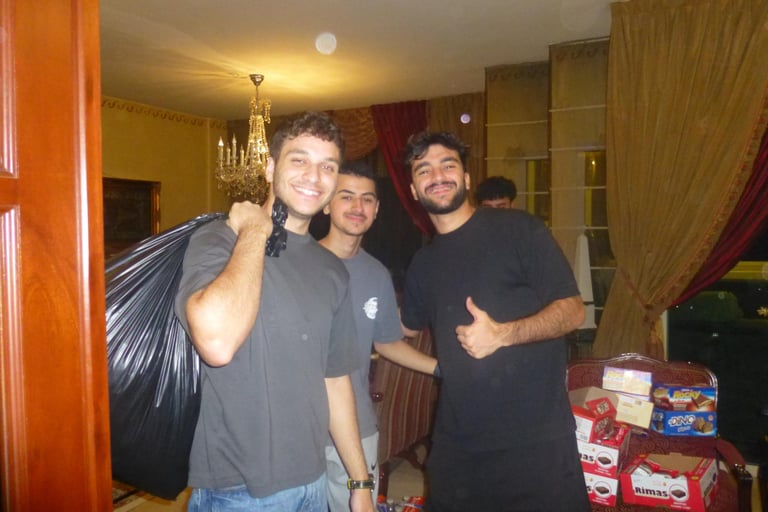

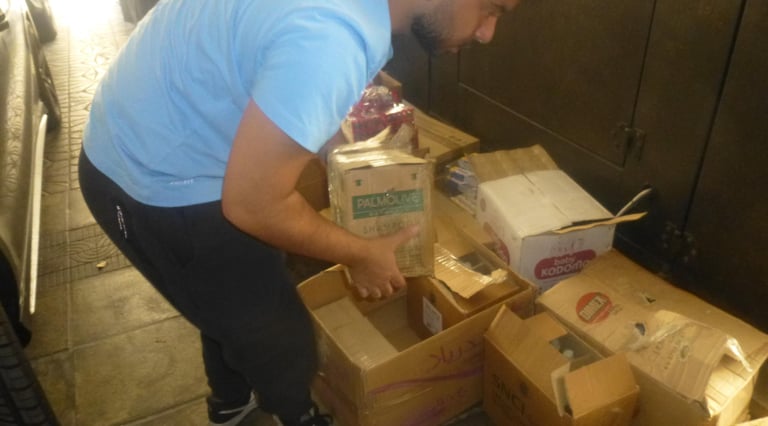

Professionalizing Our Social Media Platform
To increase our credibility and outreach, we are exploring options to bring in professionals who can help us build a more polished and impactful Instagram presence. A professionally curated platform will allow us to engage more meaningfully with potential donors and supporters while conveying the urgency of our mission more effectively.
Engagement with International NGOs
In the long term, partnering with international NGOs such as the Red Cross or UN agencies could help scale our efforts. These organizations have a wide-reaching presence and can offer logistical and financial support to ensure that aid is provided on a larger scale, extending beyond Beirut to other affected areas.
Crowdfunding Campaigns
Launching global crowdfunding campaigns through platforms like GoFundMe or JustGiving can significantly increase our financial support. These platforms provide an opportunity to tell our story to an international audience, enabling people from all over the world to contribute to the cause. This strategy can also encourage recurring donations to sustain long-term relief efforts.
Corporate Sponsorships
We should consider approaching corporations for sponsorships or donations. Many companies have corporate social responsibility (CSR) programs and may be willing to contribute resources or funds to our initiative. This can provide us with steady funding and long-term support for our projects.
Volunteer Expansion
Expanding our volunteer base by reaching out to local and international volunteers can increase our manpower, allowing us to scale up our efforts. We can create specialized volunteer roles, such as logistics coordinators, social media ambassadors, and medical volunteers, to improve efficiency.
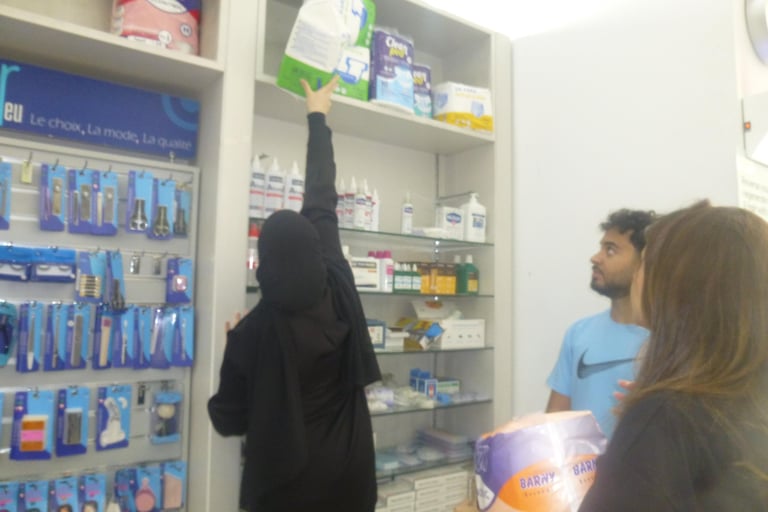

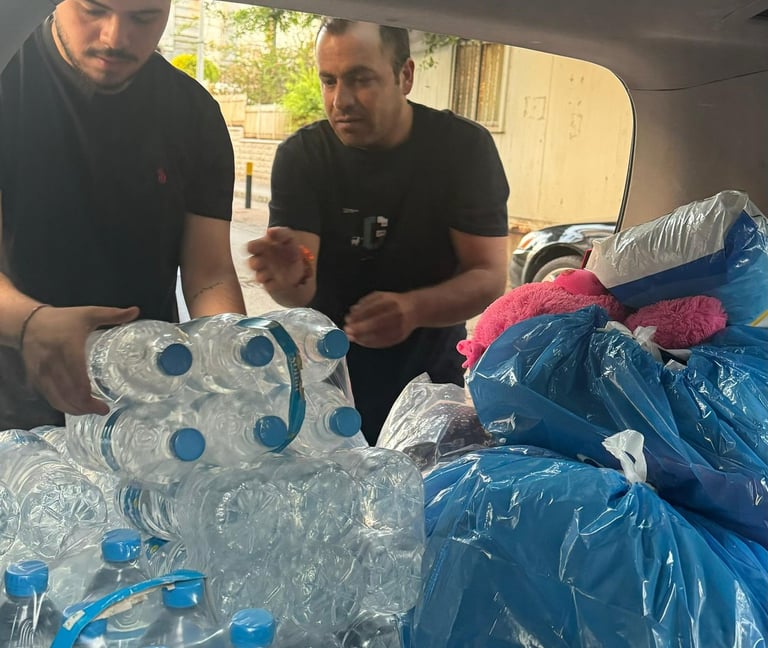

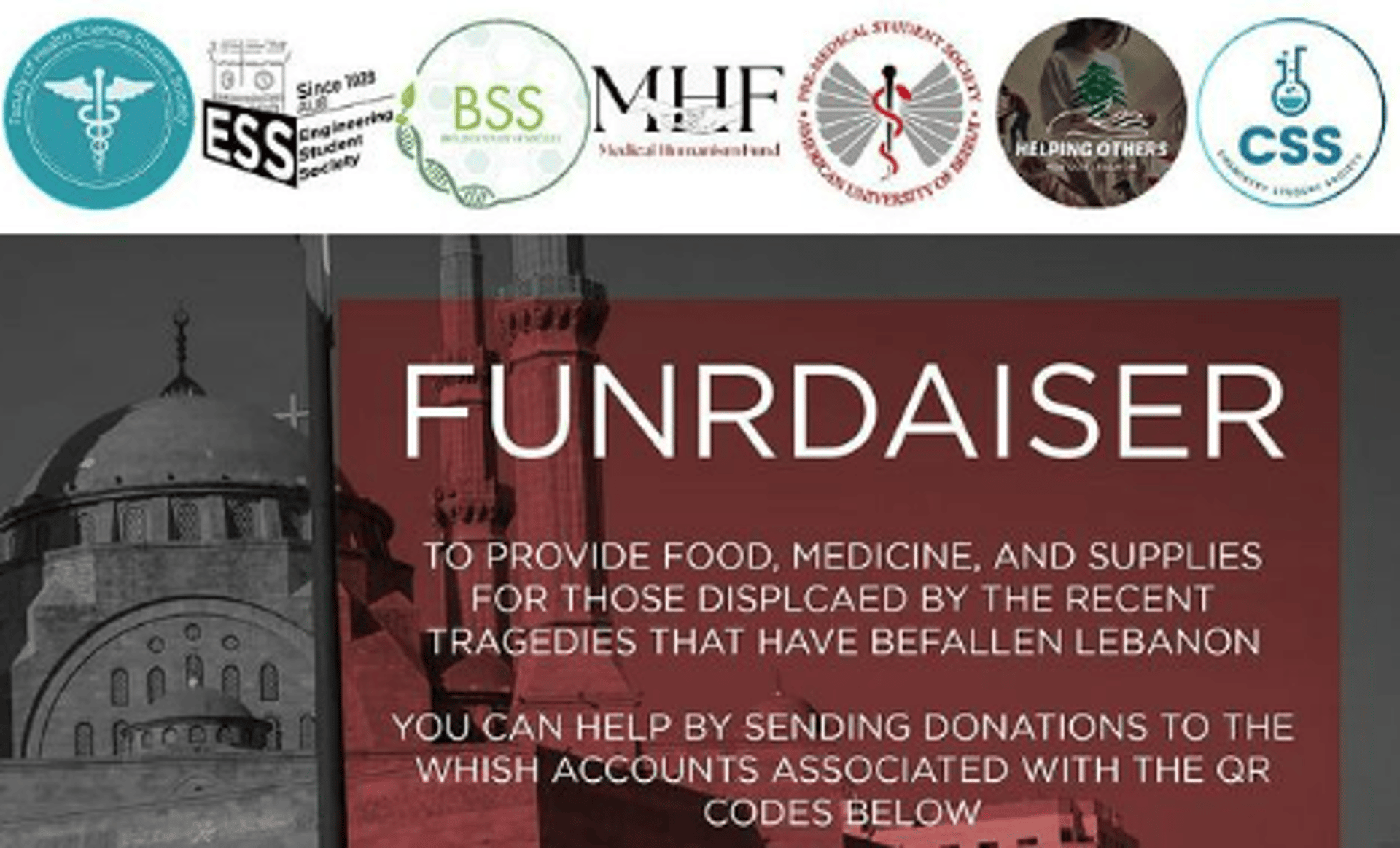
As the youth of Lebanon, we aim to fulfill our humanitarian goal and tend to our country.
Every Donation Matters
